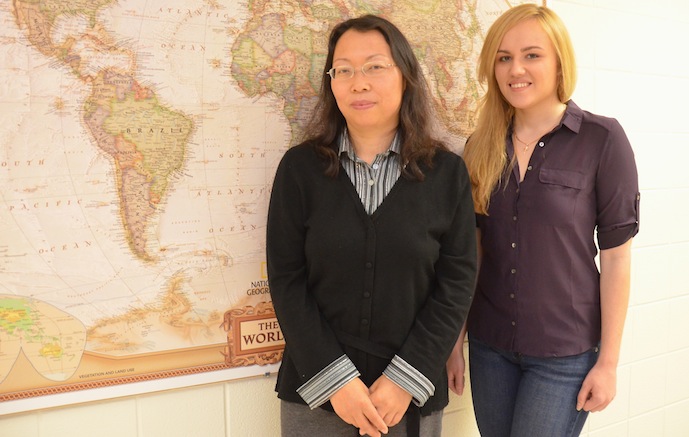As competition for talent heats up worldwide, UNC Charlotte researcher Qingfang Wang has identified critical factors that appear to give some communities a competitive edge.
Wang’s research considers highly skilled immigrants and immigrant entrepreneurs – what attracts them, what fosters their growth and what deters them from fully using their skills and knowledge.
“Obviously, highly skilled people are the major force in this new knowledge economy,” said Wang, associate professor in the Department of Geography and Earth Sciences. “At the national and global level, I think this is really important to look into this issue in the context of this global competition.”
Wang’s research considers local, regional and national data – always set within a global context. In local research, she and others are studying various aspects of Charlotte as an emerging immigration gateway.
In one of the most nationally-focused studies, the Kauffman Foundation in April released “Lessons for U.S. Metro Areas: Characteristics and Clustering of High-Tech Immigrant Entrepreneurs.” Wang co-authored the paper with Cathy Yang Liu of Georgia State University and Gary Painter of University of Southern California. UNC Charlotte colleague Deborah Strumsky helped with patent data collection.
The study found that a higher percentage of high-tech industries could be linked to a higher number of high-tech businesses among the U.S.-born and the immigrant entrepreneurs.
“At the same time, higher ethnic diversity and a larger share of the foreign-born population are crucial factors in attracting or fostering immigrant high-tech entrepreneurship on the metropolitan level,” the study found.
In another recent study, Wang and graduate student Tetiana Lysenko found that a significant number of immigrants nationwide work in occupations requiring skill levels below their level of education. Immigrants are 14 percent more likely to be under-employed than U.S.-born people.
 The probability of an immigrant’s underemployment is highly contingent on the labor market characteristics including ethnic diversity, the proportion of its foreign-born population, the economic structure, and the level of educational attainment of the labor force, in addition to individual characteristics.
The probability of an immigrant’s underemployment is highly contingent on the labor market characteristics including ethnic diversity, the proportion of its foreign-born population, the economic structure, and the level of educational attainment of the labor force, in addition to individual characteristics.
“This has multiple implications,” Wang said. “At the national level, obviously immigration debate and immigration reform have been part of the conversation forever. Lots of immigration debates are more about undocumented immigration. But the issue of the highly-skilled seldom comes into this conversation.”
This study suggests that “foreign-born and native whites fare much better in a more ethnically diverse metropolitan labour market by successfully matching their jobs to their educational attainment. It is possible that an ethnically diverse labour market provides more evenly distributed job opportunities to everyone, with fewer discrimination practices towards immigrants.”
Policymakers should consider integrating immigration policies and labor market equity policies into regional economic development agendas, moving beyond the customary focus on individuals or specific groups, the researchers said.
For Lysenko, the research is a way to influence the world. “This is our tool we use,” she said. “We want to create the knowledge about the issue. It’s important for the people who actually pass laws and have some kind of influence on this to have the information from this research.”








